Sixty years ago, John and Thelma Aaron and others filed suit in federal court in Arkansas for the purpose of integrating Arkansas schools. The resulting U.S. Supreme Court case, Cooper v. Aaron, established the supremacy of the federal constitution but it also established the notion of the supremacy of the Supreme Court in interpreting the Constitution. The issues raised by Cooper are still the subject of vibrant debate. Increasingly, state and local officials seek to avoid enforcing or following federal mandates ranging from the same-sex marriage decision in Obergefell v. Hodges to the Affordable Care Act’s individual mandate in NFIB v. Sebelius. This symposium will discuss the history and impact of Cooper v. Aaron, the local significance of the case, and its continuing vitality in an age of political and legal polarization.
The Symposium is scheduled for Friday, Sept. 28, from 8:30 a.m. to 4:00 p.m. in the Friday Courtroom at the UA Little Rock William H. Bowen School of Law, 1201 McMath Ave., Little Rock, Arkansas. Three and one half hours of CLE are available for the morning session. Registration is free. Sign up now.
Following the symposium, there is a reception at the Butler Center (401 President Clinton Ave.) from 4:30 to 6:00 p.m. to chat with the symposium speakers. Light refreshments and drinks will be served. All are welcome.
Symposium Speakers
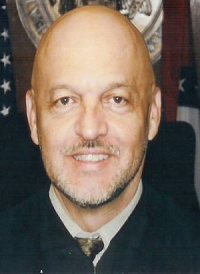 Judge Wiley Branton, Jr.
Judge Wiley Branton, Jr.
Judge Branton received his undergraduate degree from Morehouse College and earned a law degree from Georgetown University. Before becoming a circuit judge, Branton was an attorney in Washington, D.C. He started a practice in 1978 after graduating from Georgetown University, and later joined lawyer John Walker’s firm in 1989. He also was a professor of law at Howard University and a general counsel for the city’s Department of Employment Services. He became a juvenile judge on July 2, 1993. Judge Branton’s legal career follows in the footsteps of his father, Wiley Branton, Sr., the principal lawyer representing the Little Rock high school students and their families in Cooper v. Aaron.
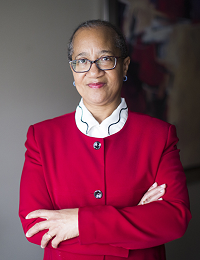 LaVerne Bell-Tolliver
LaVerne Bell-Tolliver
Dr. Bell-Tolliver has been a clinical social worker for over 35 years. She holds a master’s degree in social work from the school of social work at University of Arkansas at Little Rock, and in Biblical counseling from Dallas Theological Seminary, in Dallas Texas. Her Ph.D. is in family therapy from Texas Woman’s University, in Denton. She is currently a Licensed Certified Social Worker in the State of Arkansas and a Registered Play Therapist Supervisor. In addition, she is a clinical member of the American Association for Marriage and Family Therapy. Throughout the years, Dr. Bell-Tolliver has worked in the fields of mental health, child protective services, and in private practice primarily in the Dallas, Texas area. Upon graduation with her Ph.D. in Family Therapy in 2004, Dr. Bell-Tolliver moved from Dallas to the Counseling Services of Eastern Arkansas, She served there as a school based therapist in the rural area of Elaine, Arkansas before accepting a position of Assistant Professor in the UALR School of Social Work in 2006. She retired as an Associate Professor in May 2018. Dr. Bell-Tolliver self-published My Very Own Parents’ Training Manual, and My Very Own Parent’s Training Manual Trainer’s Guide. In addition, she was a contributing author to the Thomas Nelson’s Woman’s Study Bible. She is the editor of The First Twenty-Five: An Oral History of the Desegregation of Little Rock’s Public Junior High Schools (Univ. of Arkansas Press, 2018).
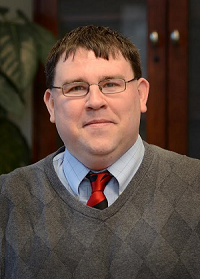 Grant Christensen
Grant Christensen
Professor Christensen joined The University of North Dakota in 2015. Prior to joining the faculty at UND, Professor Christensen was an Assistant Professor at the Charlotte School of Law, a visiting professor at The University of Oregon School of Law and a lecturer of law at The University of Toledo College of Law. After law school, but before becoming a law professor, Professor Christensen worked at Target Corporation in Minneapolis, Minnesota and with the mid-sized law firm of Marshall & Melhorn where he worked on a number of complex cases in the bankruptcy and debtor/creditor contexts. During the 2011-2012 term, Professor Christensen was awarded a Fulbright research grant by the State Department to Lithuania, the first such grant given in law to the post-Soviet nation. His research focused on international bilateral and multilateral treaty law sand its prospective application to the interpretation of treaties between the United States and Indian Tribes.
 Joel Goldstein
Joel Goldstein
Professor Goldstein joined SLU LAW in 1994, was associate dean of faculty from 2001-2004 and was awarded the Vincent C. Immel Professorship in 2005. Professor Goldstein is perhaps best known for his work on the vice presidency. His doctoral dissertation grew into his first book, The Modern American Vice Presidency: The Transformation of a Political Institution (Princeton University Press 1982). More recently, he has written a second book on the subject, The White House Vice Presidency: The Path to Significance, Mondale to Biden (Kansas, 2016). He has written numerous scholarly articles and commentary pieces on the vice presidency and is frequently interviewed by national and international media on the subject. Professor Goldstein is currently working on a book on the national political career of Senator Edmund S. Muskie.
 Enqrique Guerra-Pujol
Enqrique Guerra-Pujol
After practicing business law for several years, Professor Guerra-Pujol began his academic career at the Pontifical Catholic University of Puerto Rico. He is currently teaching at the University of Central Florida. His areas of research include markets, property rights and the philosophy of law. He is also the author of many scholarly papers, journal articles and book chapters, including “Gödel’s Loophole,” “A Bayesian Model of Litigation” and “The Poker-Litigation Game.”
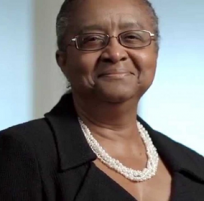 Sybil Hampton
Sybil Hampton
Dr. Hampton grew up in Little Rock under the Jim Crow system of racial segregation. In 1959, she was recruited to be a member of the second group of pioneering black students to integrate Central High School, following the Little Rock Nine’s entrance into the school in 1957. Upon graduating from Central High School in 1962, as the first African American who attended the school from tenth through twelfth grades, she received the National Service Scholarship Service and Fun for Negro Students Supplemental Scholarship and the Freedman’s Scholarship. Dr. Hampton earned a bachelor’s degree from Earlham College in Indiana, a master’s degree in elementary education at the University of Chicago, and a master’s and doctorate from the Teachers College, Columbia University in New York City. Throughout her career, Dr. Hampton served in leadership roles at Southwestern university, the University of Wisconsin Madison, and Iona College. In 1996, she returned to Little Rock to serve as president of the Winthrop Rockefeller Foundation, which focuses on racial and social justice. Dr. Hampton has received numerous awards and honors. She was named to Arkansas Business’s Top 100 Women in Arkansas several times, was honored with the Earlham College Outstanding Alumni Award in 1998, was named a Woman of Achievement by Iona College in 1986, and was the 2002 recipient of the National Conference for Community and Justice Humanitarian Award.
 John Kirk
John Kirk
Dr. John A. Kirk is the George W. Donaghey Distinguished Professor of History and director of Anderson Institute on Race and Ethnicity at the University of Arkansas at Little Rock. Kirk was born and educated in the United Kingdom, where he taught at the University of Wales and the University of London before moving to UA Little Rock in the summer of 2010 to chair the History Department. After serving five years as department chair, in 2015 Kirk became director of the Anderson Institute. Kirk’s research focuses primarily on the history of the civil rights movement. He has published eight books including the award-winning Redefining the Color Line: Black Activism in Little Rock, Arkansas, 1940-1970 (Gainesville: University Press of Florida, 2002). Kirk’s publications also include Martin Luther King, Jr. (London and New York: Pearson Longman, 2005), Beyond Little Rock: The Origins and Legacies of the Central High Crisis (Fayetteville: University of Arkansas Press, 2007), and Race and Ethnicity in Arkansas: New Perspectives (Fayetteville: University of Arkansas Press, 2014). He is currently completing an edited and annotated collection of primary documents The Civil Rights Movement: A Documentary Reader (New York: Wiley, forthcoming 2019). Kirk has published in a wide variety of journals, edited book collections, newspapers, and magazines, and he has held a number of grants and fellowships in both Europe and in the United States, including as Roosevelt Study Centre Fellow (Middleburg, The Netherlands), John F. Kennedy Presidential Library Fellow (Boston), and Rockefeller Archive Center Scholar-in-Residence (New York).
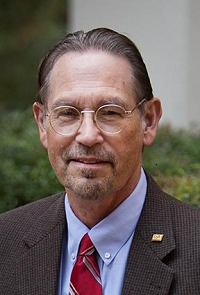 Ronald Nelson
Ronald Nelson
Dr. Nelson is an Associate Professor at the University of South Alabama. His research and teaching interests primarily focus on law and courts, law and politics, and American Constitutionalism.
 Christopher Schmidt
Christopher Schmidt
A member of the Chicago-Kent faculty since 2008, Professor Schmidt teaches in the areas of constitutional law, legal history, comparative constitutional law, and sports law. He has written on a variety of topics, including the historical development of the Fourteenth Amendment, the history of Brown v. Board of Education, the Tea Party as a constitutional movement, how Supreme Court Justices communicate with the American people, and the rise of free agency in Major League Baseball. He has published in leading law reviews and peer-review journals, among them Constitutional Commentary, Cornell Law Review, Law and History Review, Northwestern University Law Review, and UCLA Law Review. His article Divided by Law: The Sit-Ins and the Role of the Courts in the Civil Rights Movement won the 2014 Association of American Law Schools’ Scholarly Papers Competition and the 2016 American Society for Legal History Surrency Prize. Professor Schmidt is the author of The Sit-Ins: Protest and Legal Change in the Civil Rights Era (University of Chicago Press, 2018). He is currently working on a new book project, Civil Rights: An American History, which examines how Americans have struggled over the meaning of civil rights from the Civil War through today.
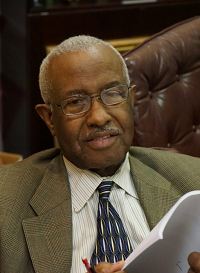 John Walker
John Walker
John Walker was born in Hope, Arkansas where he attended Yerger High School until 1952. He graduated from Jack Yates High School in Houston, Texas in 1954. He was the first African American undergraduate student admitted to the University of Texas after the Brown decision in 1954 but was not allowed to attend for racial reasons. Walker graduated from Arkansas A M & N College in with a degree in Sociology. He also received a master’s degree from New York University and a law degree from Yale University. Walker’s first work was as an attorney with the NAACP Legal Defense Fund in New York. He has remained associated as a cooperating attorney and later as a member of the Board of LDF. In 1965, Walker began the general practice of law in Little Rock, Arkansas with the emphasis on civil rights. In 1968, he opened one of the first three racially integrated law firms in the south, first known as Walker and Chachkin. Between 1965 and now, Walker has personally been involved in most of the reported cases which involve racial discrimination in the state of Arkansas. One case has continued to take his time since 1965, the Little Rock school case started by the late Wiley Branton and LDF general counsel/later Supreme Court Justice Thurgood Marshall. Many of Walker’s early cases involved classes of people discriminated against due to their race in mega corporate environments. He has received national awards from the National Bar Association, the American Trial Lawyers Association, the NAACP Legal Defense Fund, and the American Civil Liberties Union. In 2004, he was awarded the designation as Southern Trial Lawyer of the Year with its War Horse award.
 Rebecca Zietlow
Rebecca Zietlow
Professor Zietlow is Charles W. Fornoff Professor of Law and Values at the University of Toledo College of Law, where she teaches Constitutional Law, Federal Courts, and Constitutional Litigation. Professor Zietlow’s scholarly interest is in the study of the Reconstruction Era, including the meaning and history of the Thirteenth and Fourteenth Amendments. Professor Zietlow is also an expert on constitutional theory, examining constitutional interpretation outside of the courts. Her book, Enforcing Equality: Congress, the Constitution and the Protection of Individual Rights, studies the history of congressional protection of rights, and the implications of that history for constitutional theory. Her work has been published in the Columbia Law Review, Boston University Law Review, Ohio State Law Journal, Florida Law Review, the Wake Forest Law Journal, and the University of Pennsylvania Journal of Constitutional Law, amongst other publications.
Registration is free. Sign up now.
Thank you to our co-sponsor:

